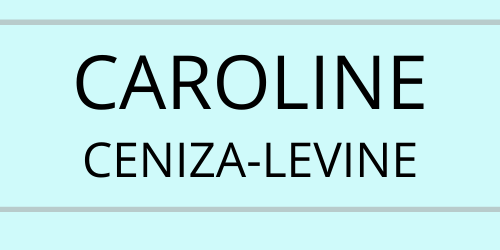How do you identify the specific needs a company is facing? – Karen
Believe it or not, when an employer posts a job description to hire for a new position, what they need and want is not all included in the description. In fact, the job posting might either be incorrect, or it might be outdated, or it might be just a sloppy copy-and-paste of what the employer was looking for in another job posting — they just didn’t want to redo the job description. So you don’t really know what an employer needs and wants just by looking at what’s posted.
Karen’s question is a follow up to an earlier blog post about the only way to convince employers that your skills are transferable (I talked about how you actually don’t want to focus on transferring your skills!). Instead, you want to focus on what the employer needs, and then address that need directly.
This is true if you’re talking about a job that they’ve posted, or if you’re talking to an employer about a potential consulting project or freelance assignment. The issue is the same – whether you’re talking full-time or temp: you are not so much selling a specific skill set, but you are addressing the employer’s need at hand.
Addressing the employer’s need was the topic of the earlier blog post, and then Karen wrote a follow-up question around, well, how do you determine what that need is?
1 – Use Published Research
The first thing to do is to use published research because the company is going to post about themselves about their business in on their website. They’re going to issue press releases that talk about upcoming initiatives. So you really want to follow the company and get a sense for what they’re working on.
You also want to look at their competitors and their websites and press releases to get a sense for what is happening in the industry overall. This way, you can start to think about needs based on the role you’re targeting. If you are going for a human resources position, you might be looking at what are the people issues around what the company is announcing.
You also want to look at the general news and specifically trade journals that follow the industry or the area of the company you are targeting. Let’s take the human resources role, just to continue that example. In addition to general news and industry trade journals, you also would want to look at trade journals in the HR space. Stay on top of the functional area (e.g., HR) in addition to whatever industry and company you’re targeting.
Finally, there are also resources available at your alma mater or at your local university if you can access those. Career services may have information about different employers. Tap into academic departments. If you are going after the life sciences industry, for example, companies in that area might be using professors as consultants. Or they might be working with graduate students doing research, and so there might be people in the universities that are active in a relevant academic department who know something about the industry, about specific companies or about that area. Alumni chapters are another way to tap into information as well.
2 – Use Informational Interviews
Alumni chapters is a source for informational interviews. You’re going to be networking with people at alumni events. You’re going to be talking to people who have worked at your target company or are working at the company. You are going to take these informational interviews and use the information that you gleaned from these exploratory meetings to give you some information that you aren’t going to be able to find from published sources.
3 – Test hypotheses
When you are conducting these informational interviews, you really want to focus on, what I call. “testing hypotheses” rather than simply asking questions. You’re not going down a checklist with basic questions — what do you think is necessary for this job? Or can you describe what would make a good HR consultant for this type of a company?
You want to come up with (i.e., anticipate, estimate) what you think the employer needs are, and you want to test your ideas with the people that you’re talking to. For example, you can say, “I’ve been reading about XYZ issue, and I think that this is an important issue that a lot of companies in that sector/ industry/ focus area need to think about. Then the person who is active in that area can say Yes or No, or they can add their colors, insights and nuances. You can have a robust discussion that goes deeper than what the published information says
What is a job well done for your target role, at your target company, in your target industry?
Ultimately what you’re trying to ascertain is what a job well done looks like. What the employer wants and needs is to have a problem solved. It’s to have a job taken care of, so that they can focus on other things. As I mentioned earlier, the job posting may or may not be accurate, up-to-date or comprehensive. All of your research — the published information, the informational interviews and conducting interviews in a way where you’re investigating hypotheses — should drive towards discerning what those specific employer needs are.






